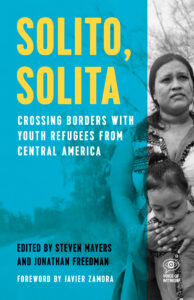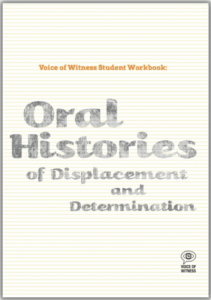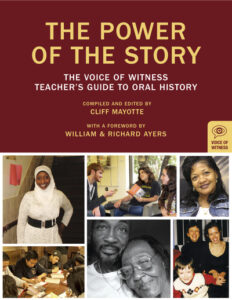The lessons in this unit explore narratives from Mi María: Surviving the Storm, a collection of oral histories from Puerto Rico in the aftermath of Hurricane María. The lessons reflect an Ethnic Studies framework and invite teachers and students to form a nuanced, empathy-based understanding of the issues facing Puerto Ricans today, and the social, cultural, and historical forces that inform their experiences. In addition, the curriculum contains two lessons created specifically to address the needs of students and teachers in Puerto Rico. Students explore the following questions:
- What do individuals and communities need after a disaster? What types of resources exist, and where do these resources come from?
- Which systems are responsible for responding to climate disasters? When is a system most beneficial or harmful to a community?
Grades: Flexible and adaptable for older middle school, high school, and higher education. Lessons can also be adapted for English language learners.
Time Needed: Entire curriculum covers approximately 3 weeks of class time. However, each lesson can be taught separately.
Objectives:
- Students will participate in group discussion to identify community needs and sources of resources during a disaster.
- Students will use visual analysis and creative response to deepen their understanding of globalization and systems of power.
- Students will examine media coverage as a dominant narrative, using personal reflection and the cultural wealth framework to create counternarratives.
Download Free Curriculum
* Required fields
For a disaster born at the intersection of colonization and the climate crisis, only a first-person plural account can truly do justice in a post-tragedy landscape where there has been no justice. Mi María: Surviving the Storm is a triumph of eyewitness accounts that centers survivors and tells a three-dimensional truth that can only be pieced together from multiple perspectives.
Aya de León
author of Side Chick Nation
About the Oral Histories
On September 20, 2017, Hurricane María pummeled Puerto Rico for over thirty hours. As brutal as the storm was, the real catastrophe was yet to come. Lack of government support left many in the archipelago without electricity, clean drinking water, food, and medical care for months. Years later, Puerto Rico is still recovering.
Mi María: Surviving the Storm brings together seventeen stories of perseverance and community that ask what it means to be a US citizen in a colonial context, how communities come together in the wake of disaster, and how precarity is exacerbated for those on the frontlines of the climate crisis.




